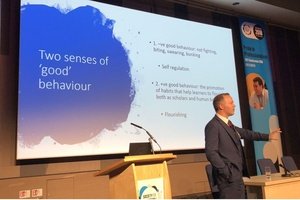Horrendously high suicide rates are plunging many families into crisis. And unfortunately, the result of a suicide is not an initiation of community healing through open conversation or positive action from government.
Rather, the result is often families suffering in silence because of the community stigma attached to suicide. Many are unable to rationalise the utter soul-destroying feeling of isolation that it brings. Then there’s the weight of your perceived failure as a parent, family member or friend to contend with.
I have watched suicide take away part of a mother’s internal spirit. I will live to see - on too many occasions - our communities bury another young person.
I’ve also witnessed the nasty gossip that surrounds it, and the attributing of blame that some feel is their right to dish out. It often amazes me how gossip and accusations can cause a community to rot from within.
With the HSC coming up, it is time to actively monitor and talk to our children, and especially young males.
We socialise boys from birth through to early adulthood to internalise emotions and to not ask for help.
Asking for help is seen as a sign of weakness and even passively punished in some situations. The ability to ‘suck it up and shut up’ is understood as a sign of strength and a characteristic of a ‘true’ country man.
This damaging attitude is evident in education, family law and within most business and social functions in country life.
The result has not been cohorts of strong, emotionally resilient young men, but poor communicators who carry the enormous burden of not understanding their emotions and who are unable to seek help. It must stop!
In my 30-year teaching career I have lost 13 students to suicide and many more to unexplainable accidents: the young man who is killed in a road accident where he has hit a tree with no skid marks to be seen, or the shooting accident alongside a dam where the bullet penetrates the head directly.
This misreporting may allow families to heal on the surface, but it further hides the true extent of the crisis in country Australia.
A young man that I remember both fondly, and to my shame with a degree of unexplainable anger, was Daniel.
It’s been 26 years since he died. I think my anger stems from a combination of not being able to help at the time, and the fact that nothing has changed.
Daniel, upon reflection, was a victim of ‘suck it up and shut up’ socialisation, but also the enormous - and I believe unnecessary - pressures of the HSC.
Think about those well-meaning statements from teachers and parents such as, ‘You only get one chance’, or, ‘You are throwing away an opportunity’.
The message he was receiving, as I suspect thousands of others have, is that your worth as a person is reflected by the results in this exam.
This tool of the universities and politicians is not a mark of a person’s worth - it was never designed as such!
It could be argued that it is not even an effective assessment lever for universities, nor something that defines students' future success.
Fuelling the suicide pandemic in Australia is the inability of numerous local, state and federal governments to provide adequate services.
The trend we’ve seen from our leaders is to narrate back the problem of geographical inequality, not to put forward workable solutions.
Indeed, despite numerous governments coming into power over my career, I can honestly say the lack of government-provided facilities caused by geographical discrimination is only getting worse.
As a nation we still seem very poor at listening and providing support. When I was in my late teens and early twenties, my mates’ solution to solving a problem was alcohol. If five drinks would not cure the problem, try twenty.
I suspect this type of socially sanctioned self-medication is still occurring. The culture around alcohol is masking considerable personal and emotional torment within young men.
This, coupled with the reluctance of people to report domestic violence in many communities, hides a hideous problem.
Often when I highlight the dire state of youth mental health in my region, I am accused of painting rural communities in a negative light.
In addition, watch the bureaucratic hammer hit when a principal dares to speak out about the current culture within education.
I am not saying a particular area or demographic has a problem - I am stating the whole country is in the grip of a suicide pandemic and yet we are still paying lip service to the issue.
Australia has a worrying level of political and societal apathy around mental health and suicide. Acknowledgement of the problem on our hands is a vital first step in tackling the situation.
• Confidential help and free counselling is available at Lifeline on 13 11 14 and Kids Helpline on 1800 55 1800.
















